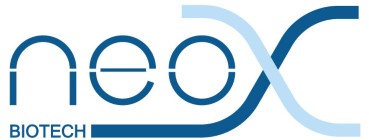Interest in artificial intelligence (AI) as a tool to help find new drugs has exploded in recent years and it could help accelerate and reduce the cost of the drug discovery process. AI also offers the opportunity to gain a deeper understanding of targets and generate new molecules, which might not have been discovered through conventional means.
The application of AI spans all stages of drug development, says Michael Chen, CEO and co-founder of China-based company NeoX Biotech. With AI-focused centres of excellence in Beijing and Shanghai, NeoX has developed highly transferable and sophisticated platforms for early drug discovery.
AI can help identify novel disease-related targets and predict new drug designs. It can, for example, help scientists understand protein function and the potential of proteins as new drugs using predictions of 3D structure. It can also identify novel binding sites and protein-protein interactions. More importantly, scientists are using AI to tackle bottlenecks in drug design.
With rapid advances in molecular biology and immuno-oncology, target-based drug discovery has become a leading approach. “Most of the low-hanging fruit has already been picked,” says Chen. “Which leaves AI and computational science to solve complex biological challenges and key pain points in drug development.”

An illustration of an AI-designed macromolecule drug.Credit: NeoX Biotech
Founded in 2018, NeoX Biotech has developed two innovative platforms, neoDegrader™ and neoBiologics™ to integrate AI and biophysics with high-throughput experiments, via an in-depth characterization of Protein-Protein Interaction (PPI). NeoX is leveraging the integrated AI-driven drug discovery platforms to focus on drugs with high novelty, such as macromolecular drugs — including peptides, cytokines, and antibodies — and multi-specific drugs, for example, protein degraders, which are bifunctional small molecules for targeted protein degradation.
The company chose to focus on building a diversified pipeline with novel drugs in order to address the challenges faced by traditional drug discovery.
“Targeted cancer therapies — for instance, small-molecule-based, protein-interacting drugs — should be more effective and less toxic to non-cancerous tissues compared to traditional chemotherapies,” says Chen. “However, in reality, targeted small molecules are easy to develop drug resistance to and still have undesired side effects.” This speaks for the need to design drug compounds with multiple functions or diverse active domains to remove unwanted proteins.
NeoX’s newly-developed platforms lend themselves well to collaboration with other industry partners. For example, in its recent work with I-Mab — a NASDAQ-listed biopharmaceutical company with expertise in immunology and oncology — NeoX successfully generated lead molecules with desired key properties in less than three months. Without the assistance of AI technologies, the process of generating a similar drug profile could easily take a year.
Co-development of drug candidates with other pharmaceutical companies is a business model that has proven to work well for start-ups. With more than 10 wholly-owned, internally discovered pipelines in the making, NeoX continues to deepen its collaboration with industry leaders. Additionally, NeoX is always actively looking for out-licensing partnerships to help bring the drug product to the market and help partners to expand their pipelines. Their current projects include cytokines, protein degraders and nanobodies.
As with any technology, AI-enabled drug discovery comes with its challenges. In the field of macromolecular drugs, for example, data sets used to train AI models are often limited. With backgrounds in physical chemistry and computational biology, Chen and his co-founder learned to leverage their skills to lessen the data dependency of drug design.
Looking ahead, NeoX is preparing to become a clinical-stage biotech company and start clinical trials of some of its candidates. “Our well-established AI-powered platforms can offer significant benefits by helping pharmaceuticals solve complex problems in drug discovery and development. By working with biopharma and leading biotech companies, we hope to more quickly bring these innovative medicines to patients.”
This advertisement appears in Nature Index 2022 AI and robotics, an editorially independent supplement. Advertisers have no influence over the content.


